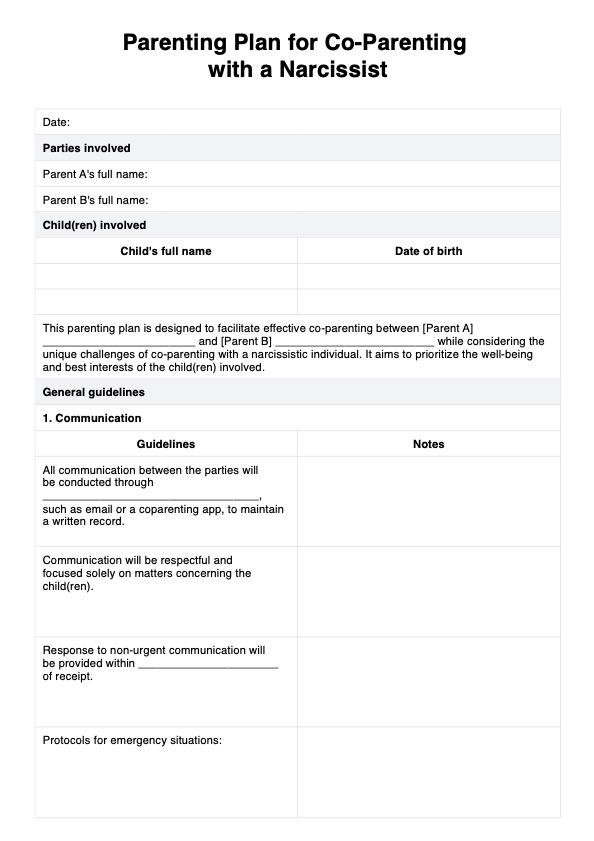Develop a detailed, structured plan that limits direct communication, sets clear boundaries, and focuses solely on the children's needs. Use parallel parenting strategies and consider involving a neutral third party for mediation.

Sample Parenting Plan with a Narcissist
Help your client develop ideas on how to navigate co-parenting with a narcissist by using this Sample Parenting Plan With a Narcissist.
Sample Parenting Plan with a Narcissist Template
Commonly asked questions
Establish clear, written communication guidelines, limit personal interactions with the narcissistic parent, use a business-like approach in all dealings, and document all exchanges. Focus on your children's well-being rather than engaging in conflicts with the other parent.
Advise parents to maintain consistent, loving behavior with their children and avoid speaking negatively about the other parent. Recommend creating a safe, stable environment during parenting time. Suggest seeking support from a therapist or support group to manage emotional well-being. Emphasize the importance of documenting interactions and adhering to the co-parenting plan.
EHR and practice management software
Get started for free
*No credit card required
Free
$0/usd
Unlimited clients
Telehealth
1GB of storage
Client portal text
Automated billing and online payments











